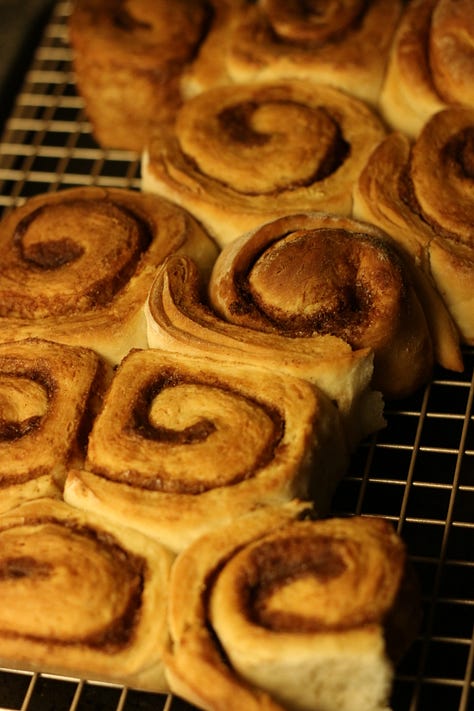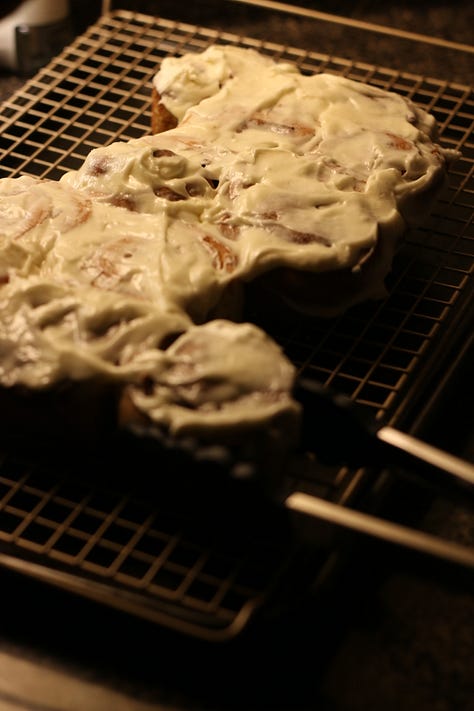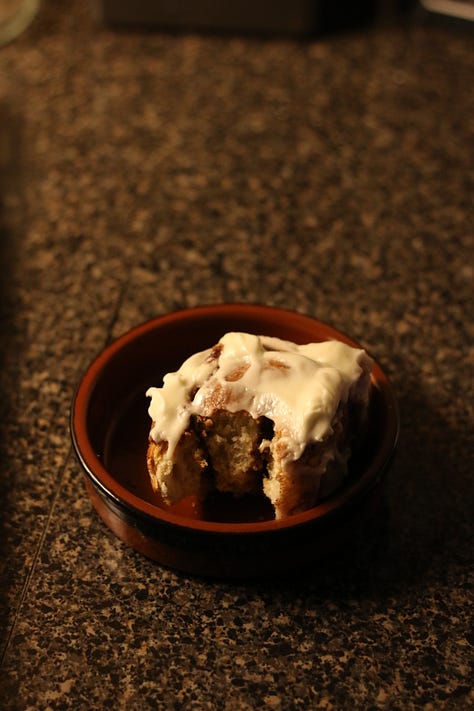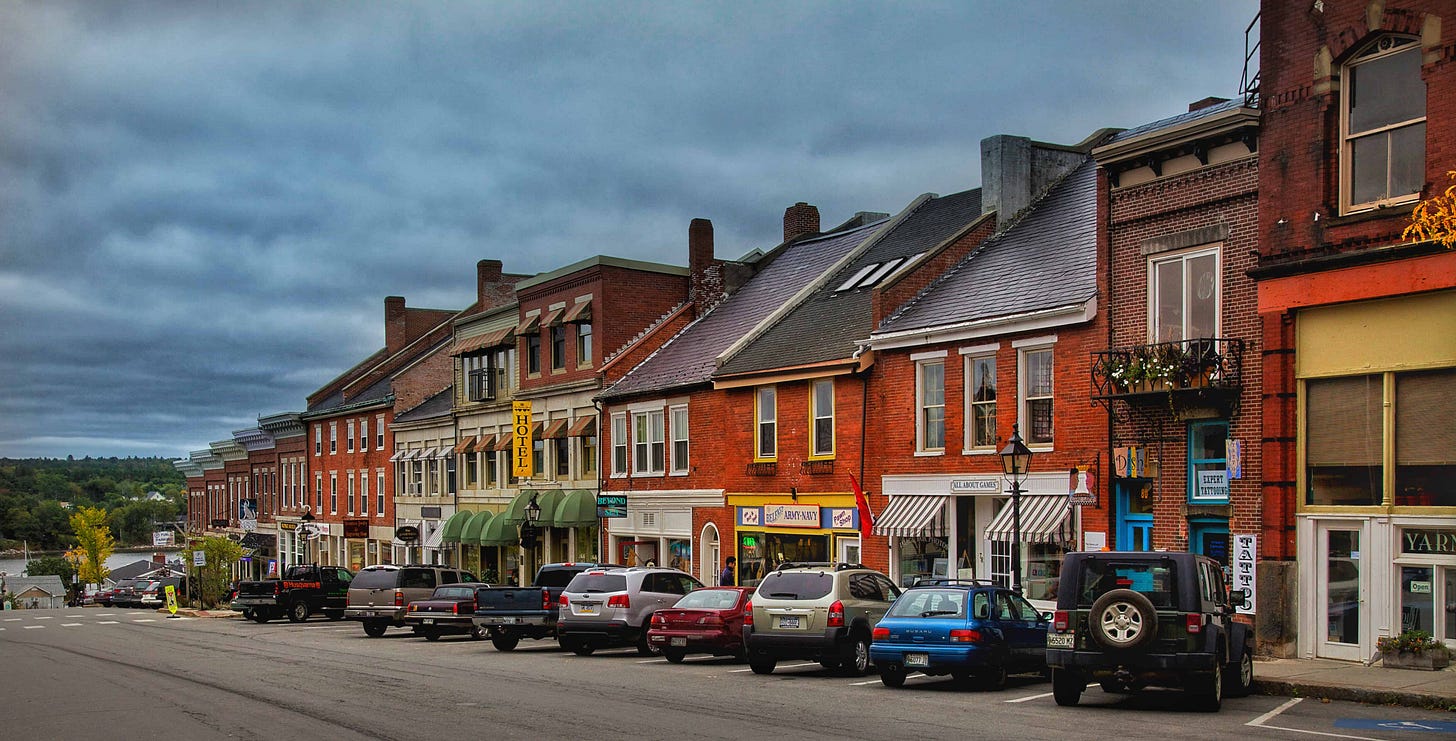density dad is brought to you by our generous paid supporters who believe in building infrastructure that includes families and vulnerable populations.
Your contributions make it possible for us to continue creating quality content. Consider becoming a paid supporter today.
IIt’s just before 10 p.m., and my made-from-scratch cinnamon rolls are finishing up. I started them shortly after 6 p.m., and as I pull them out, my wife walks in with ingredients for the cream cheese icing. It hits me—how often do we take density for granted? Would she have waited until closing time if the grocery store wasn’t literally across the street? With a Sprouts opening in our neighborhood this weekend, I’ve started wondering if I can be obedient and cook from what I already have.



We’re all probably guilty of this. I’ll admit, I only really check what’s already in the fridge or freezer when a store is closed or we’re over budget. However, I’ve been a bit more intentional lately—after scoring a $6 FoodSaver and finally securing a Costco membership last month. Little adult wins like that make you realize how much power there is in knowing you already have food at home. Suddenly, cooking from what’s on hand feels less like a chore and more like a quiet rebellion against convenience.
What has density destroyed?
If you’re new here, I like to talk about walkability, density and how family plays into it all. If you’re an OG, this may feel like our old Small Town Lovin’ segments. Thank you for hanging in there. Now, back to our regualrly scheduled program.
Last week, I got lost in
‘s Instagram story thread from her trip to Maine. Truthfully, I’ve never thought much about the state beyond Portland.Sure, it’s home to one of my favorite beers, Lunch—a hazy IPA that craft drinkers chase after—and I’ve heard plenty about the lobster rolls. But that was the extent of my knowledge.
What caught me this time was the pull of something else: the quiet, the retreat, the sense of remoteness. That tug feels especially strong lately since losing my job last month and stepping fully into the role of house manager in our home. Baking, deep cleaning, building systems for our chores, curating our idea of home. I’ve been leaning into it, and I share more about that over here on
.Honestly, I didn’t know much about Maine beyond Portland. Even then, I never seriously considered visiting.
But Maine kept finding me. Two close friends moved back home to Maine from Richmond last wek. On Sunday, an old coworker shared their vacation views on Instagram. And just like that, Maine quickly became my latest fixation. Did you know that Maine produces more wild blueberries than any other place in the world?! Off subject. Reel it in.
Look, I’ve never been to Maine, but the more I dug in, the more these towns kept stopping me in my tracks.
Camden looks like something out of a painting. A harbor town where the mountains literally meet the sea, with a downtown that you can actually walk. Shops, cafes, history — and then you hike up Mount Battie and suddenly you’re looking out over Penobscot Bay. I have yet to wrap my mind around it.

Then there’s Belfast, which feels quieter, artsier. It’s small but somehow has a waterfront path, local galleries, coffee shops, even concerts in the park. Appears to be the kind of place where you’d just keep running into the same people until they knew your name.

And Wiscasset — which has been called the “prettiest village in Maine.” The downtown is tiny, just a handful of streets, but full of antiques, seafood spots, and history that looks like it’s been frozen in time. It’s the kind of small scale that makes you want to slow down, walk slower, notice things. Capture them even.
The wild part is, these towns aren’t sprawling. They’re not chasing towers or building endless parking garages. They’re dense in a different way — walkable, human-sized, connected to the land and the water around them. They’ve managed to keep their agriculture, their shoreline, their views, and still give people the kind of life big cities claim to offer.
It makes me wonder if cities have been doing density wrong all along. What if the proactive grocery shopping, cooking and freezing meals, and gardening—the very limitations of rural life—are actually hard boundaries necessary for a balanced life? Lenny Williams sang, “He watched television until the television went off,” and I have to admit, I didn’t know there was a time when TV just… stopped. Boundaries. Go to bed.
Maybe a business closing “early”—say 10 p.m.—is really a call to pull that frozen soup you prepped last month out for dinner. Or maybe a coffee shop not opening until 7 a.m. is a nudge to make your own if you’re up early and sit on the front porch, soaking up the stillness. The so-called “limitations” of rural life aren’t limiting at all. They are the rhythms that remind us to appreciate having a roof over our heads, running water at home, and a cool place to keep our food. Humbleness built into everyday life.
What if something like that could exist in an urban environment too? What if city life could include limits that give us space, rhythm, and a real sense of presence—without giving up access to the people, shops, and streets we love?
Kudos to Maine for figuring it out.
💭 Density Dad Dialogues
What small towns or places have surprised you with how walkable they are?
Could your city learn from a smaller town’s way of life?
What would density look like if it meant keeping nature, agriculture, and views intact?
Before I close, I want to invite you into another side of this journey.
If Density Dad is about how we move through the world, Remnants of Rummaage is how we rediscover recipes, rest and daily rituals. It’s where I retreat my mind from the advocacy side of things.
And if you’re more of a visual person, Finding Barry on Youtube shares these stories weekly.
Like what you read? Feel free to forward this along and tell a friend.
Subscribe: Youtube
Follow me: Instagram
Interested in Sponsorship: email barry@density.dad.
density dad is brought to you by our generous paid supporters who believe in building infrastructure that includes families and vulnerable populations.
Your contributions make it possible for us to continue creating quality content. Consider becoming a paid supporter today.



